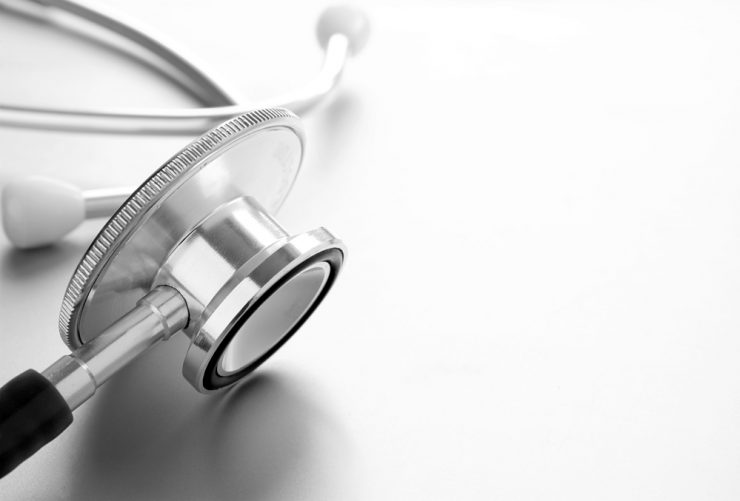Treatment
As already mentioned above, immediate medical treatment is the key for preventing another TIA or a full stroke.
The line of treatment advised depends on individual factors like age and medical history. It is normally a combined effect of medicines and lifestyle changes which can help reduce risks of recurrence. The list of treatments is given below:
Anti-platelet medication – platelets are cells of blood which aid blood clotting. During any vessel damage, platelets stick to each other and form clots to arrest bleeding. Anti-platelet medication functions to prevent the platelets to stick and form clots. Aspirin and dipyridamole in combination have proved to be effective in controlling TIA. These are recommended to be taken for 2 years followed by a low dosage of aspirin to be continued thereafter. Some side effects may include nausea, diarrhoea, indigestion, stomach irritation, headaches and dizziness. A substitute medicine, if aspirin is not suitable, is Clopidogrel which is advisable in case of arterial diseases. This can also cause side effects like indigestion, diarrhoea, pain in abdomen, bleeding or bruising.
Anti-coagulant medicines – these are recommended if the cause of TIA was a blood clot and this medication works to reduce the blood clotting chemicals in blood to prevent further damage. Warfarin is an anti-coagulant medicine. Its dosage needs to be balanced to maintain the blood thickness at a safe level, so constant monitoring is important. This is done through INR (international normalised ratio) test, which measures the time taken by blood to clot. The most concerning side effect is bleeding. One needs urgent medical attention if any of the symptoms are seen – blood in urine or stool, blood in cough or vomit, black stool, nose bleeding for long periods beyond 10 minutes, excessive bruising, abnormal headaches, increased menstrual bleeding.
Hypertension medication – hypertension being a high risk factor for TIA, medication to control it is important. One needs to take medical advise to take the best suited type of medicine.
Cholesterol medicines – again, cholesterol being a high risk factor causing TIA, control is required through lifestyle and diet changes and through medicines like statin which help reduce cholesterol production in liver.
Surgery or carotid endarterectomy – this surgery involves removal of a damaged part of the carotid artery lining and any blockage formed in the artery. It is required when person suffers from antherosclerosis (narrowing and hardening of carotid artery carrying blood to the brain), this surgery is recommended to prevent risk of TIA. However, effectiveness of the operation depends on the extent of artery blockage as there is a risk of stroke during the surgery. Following the operation, the recurrence risk of TIA reduces largely. The surgery is performed under general or local anaesthesia. An incision is made in the neck to open the affected artery, the fat deposits are extracted or the damaged part of artery is replaced with blood vessel from another body part. The procedure may take couple of hours and needs 2 days hospitalization post operation.
Prevention
Occurrence of a TIA is in itself a warning sign for more attacks to follow, thus making treatment and prevention imperative.
Various preventive factors can help lower risk of getting a mini stroke, these include
Fight obesity – overweight and obesity are root causes for heart ailments, hypertension and diabetes which are further risk factors for strokes. So it is important to maintain your weight as the BMI and keep healthy.
Regular exercise regime helps maintain blood pressure, body weight, tackle mental stress and prevents heart problems, strokes and cancer. Half an hour exercise, five days a week is a good schedule to follow
Balanced diet including fruits and vegetables in plenty to provide body with vital minerals, vitamins and antioxidants, which helps stroke risk by preventing damage to blood vessels. Reduce intake of salt and sugar. Limit the saturated fats in diet to keep cholesterol under check. Avoid foods like butter, ghee, cream, hard cheese, meat cuts, meat pies, biscuits and cakes, coconut & palm oil containing products,
Alcohol should be taken within specified limits – Daily intake of 2 to 3 units for women and 3 to 4 units for men is recommended. In case, one has already suffered a mini stroke, alcohol intake within limits is fine as alcohol aids in thinning of blood. However, excessive drinking can lead to hypertension, bursting of blood vessels and hemorrhage and finally stroke.
Smoking is taboo as it narrows the arteries, causes blood clots and increases the stroke risk by 2 times.
Regular tests to check cholesterol is advisable if you are suffering from hypertension and high levels of cholesterol.











